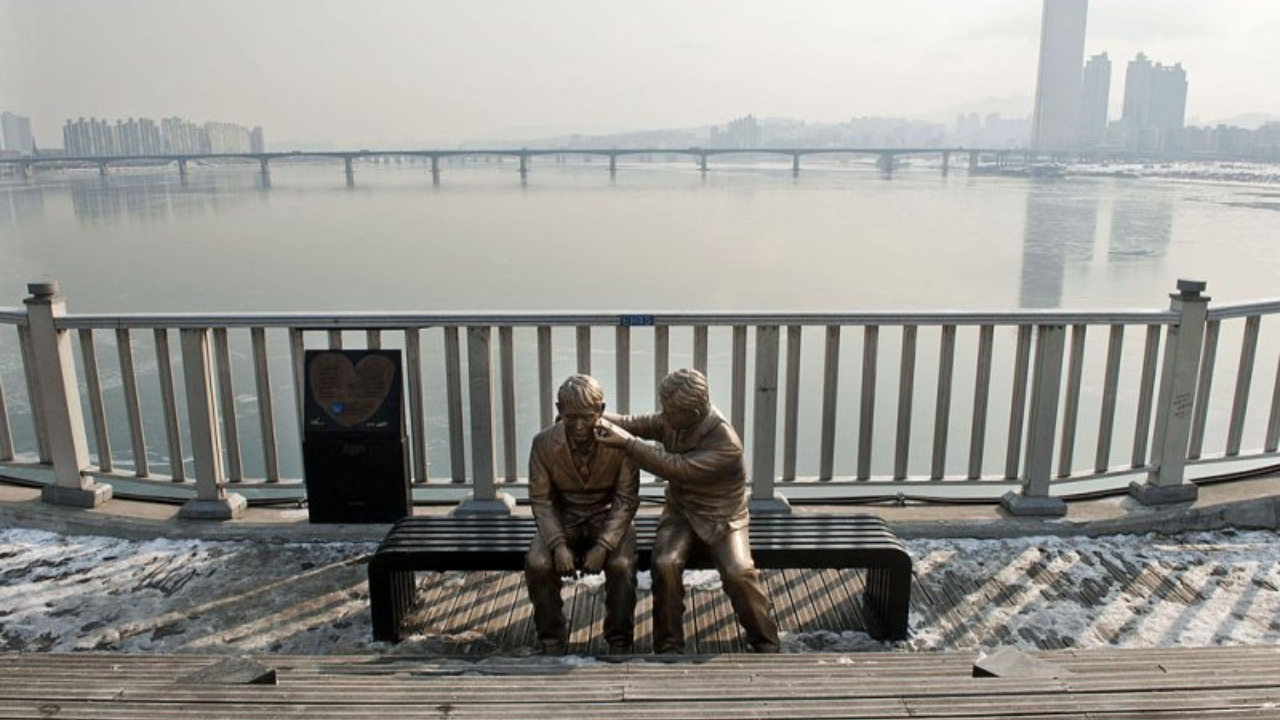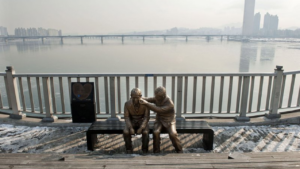A South Korean politician is facing significant backlash after attributing a rise in male suicides to what he described as the increasing “dominance” of women in society. Seoul City councillor Kim Ki-duck suggested that women’s growing participation in the workforce has made it more difficult for men to secure employment and find marriage partners.
Councillor Kim, a member of the Democratic Party, made these controversial remarks while analyzing data on suicide attempts along Seoul’s Han River. His report, published on the city council’s official website, noted that the number of suicide attempts along the river rose from 430 in 2018 to 1,035 in 2023, with men comprising a growing percentage of those attempts, increasing from 67% to 77%.
South Korea, known for having one of the highest suicide rates among wealthy nations and poor gender equality records, has sparked criticism from various quarters due to Kim’s assertions. Mental health experts, including Professor Song In Han from Yonsei University, warned against making such claims without solid evidence. Professor Song emphasized that globally, men have higher suicide rates than women and that the causes of the increase in male suicide attempts in Seoul require scientific investigation rather than being framed as a gender issue.
Critics on social media and political figures alike have condemned Kim’s comments as unsubstantiated and misogynistic. The Justice Party urged him to retract his remarks and instead conduct a thorough analysis of the problem. Yuri Kim, director of the Korean Women’s Trade Union, accused politicians of scapegoating women instead of addressing the real challenges they face.
Councillor Kim defended his comments, stating that he did not intend to criticize the female-dominated society but was merely expressing his personal view on its potential consequences. However, his statements are part of a broader pattern of controversial and often unscientific political proposals in South Korea. For instance, another Seoul councillor recently suggested young women take up gymnastics to boost the birth rate, and a government think tank recommended that girls start school earlier than boys to foster attraction among future couples.
These incidents underscore the pervasive misogyny in South Korean society, according to Yuri Kim, who argued that blaming women for entering the workforce only perpetuates societal imbalances. Currently, women make up 20% of South Korea’s parliament and 29% of local councillors.
The Seoul City Council stated that there is no vetting process for what politicians publish on its official website unless the content is illegal. Individuals are solely responsible for their content and will face any repercussions in the next election.













